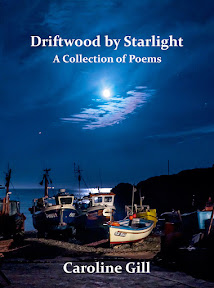 |
| Snape Maltings |
I can hardly believe that nearly a week has gone by since Aldeburgh Poetry Festival.
I attended a translation workshop led by Sasha Dugdale at Aldeburgh on the Friday afternoon. Although I have contributed to the Romanian journal, Orizont Literar Contemporan, in various ways and over a number of years, I have never been a poetry translator. Sasha led us through a Mandelstam poem with great panache; and when it was over to us to try to present our own versions in English, we began to grasp why translation is the closest reading of a poem that can be attempted. Sasha drew our attention to the journal called mpt, which stands for 'modern poetry in translation'. The current issue ends with a fine tribute to Seamus Heaney by David Constantine, who was one of the three poets at this year's Aldeburgh Poetry Prom.
Then on Saturday afternoon, David (Gill) and I had tickets for a couple of events at Snape Maltings. The first was a presentation on Christopher Logue by Craig Raine, a poet in his own right, and known by many for his time as poetry editor at Faber and Faber.
Raine spoke about Logue's five volume magnus opus known as War Music, which constitutes the poet's contemporary re-working of the Iliad, a work I know from my days as a student and then as a teacher of Classical Studies. War Music is 'crammed with contemporary references' and is not merely a translation. During the short session Raine led us through a number of passages and we began to see how cinematic influences had been brought to bear on the material in a bid to enhance the action. The notes I made on the handout are full of remarks such as 'slapstick', 'cartoon comedy' and 'violence infected with comedy'.
Our final Aldeburgh event was a brief reading by D. Nurske, sponsored by Ink, Sweat and Tears. Nurske explored the nature of 'beauty' in poetry in his Short Take session. He reminded us of the fact that a century ago readers were keen to present the work of others at readings whereas the current trend is for readers to share their own work. To this end, he chose to redress the balance by introducing short poems by a variety of writers, including some revered household names like Issa and others less universally known like Sylvain Garneau.
Nurske spoke of poetry as 'a voice that comes from nowhere'.
 |
| With Lynn Woollacott |
With this thought much in mind, it was time to head for the Trask Cafe for a cup of Earl Grey and a slice of chocolate brownie. One of the pleasures of attending a festival is the chance not only to make new acquaintances in workshops etc. but to meet up with friends. Lynn Woollacott and I have 'known' each other for some years through our poems in Indigo Dreams publications and through online exchanges. We are both Hellenophiles with a soft spot for the threatened Caretta caretta sea turtles (click here and scroll down) that come ashore to breed in a few selective sites on the islands and mainland of Greece.
It was lovely, Lynn, to have the chance to meet you face to face!
 |
| Snape Sunset |
Postscript: my thanks to Naomi Jaffa and the Festival organisers. The Poetry Paper is as ever crammed with poems and commentary. Issue 10 celebrates twenty-five years of the festival and contains an interview with David Constantine, a double spread on landscape in poetry and, of course, a good number of poems.










